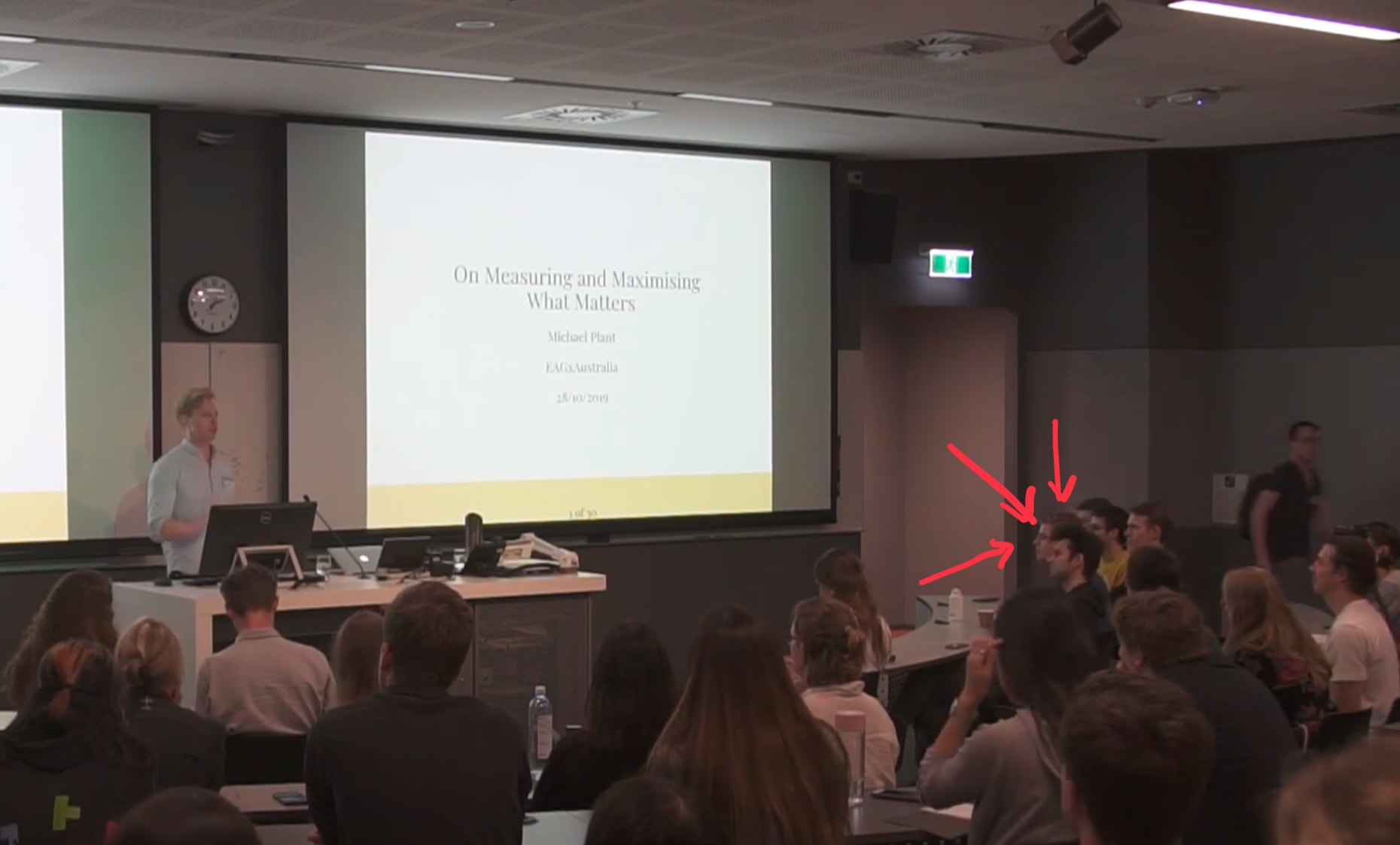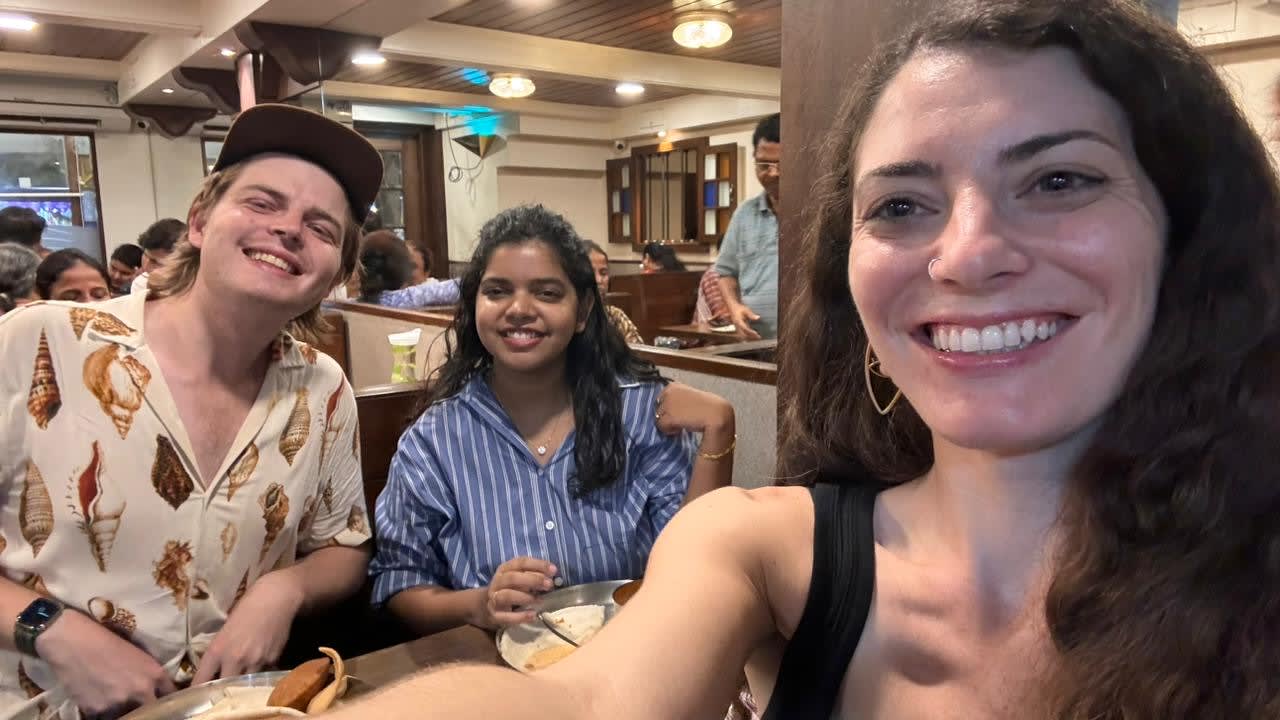A note from Rachel, Kaya Guides’ founder:
This post is to announce that Kaya Guides has brought on Huw Evans as a new co-founder and our CTO to bring our work to scale. I’ve been running Kaya Guides mostly as a solo founder for the last two years. I’ve been a decent 0 to 1 person, but it became clear to me over time that to bring Kaya Guides from 1 to 100, we also need an excellent tech leader.
Huw is a skilled developer who brings four years of product management experience at Atlassian. But Huw is not just a dev. In Huw, I’ve found not only a tech person, but a thought partner, co-leader, and brilliant strategist with great vibe, values match, and a range of skills that are complementary to mine. He is an outstanding researcher, number-cruncher, analyst and visual designer, to name a few of his many talents. Huw has been engaged with EA for years and shares my commitment to not just helping some people, but transforming the mental health sector and making Kaya Guides into one of the world’s most cost-effective mental health interventions. We are extremely lucky to have him, and I’m grateful to him for deciding to join me on this adventure.
G’day—I’m Huw, the new co-founder & CTO of Kaya Guides.
Kaya Guides treats depression in India using a unique, digital-only model called guided self-help. Guided self-help takes a ‘flipped classroom’ approach to psychotherapy, where beneficiaries self-learn calming techniques from videos delivered over WhatsApp, and meet with a lay counsellor (we call them guides) for 15 minutes a week, over 8 weeks. We were incubated by Charity Entrepreneurship, and developed our intervention in partnership with the WHO, modelled after two RCTs in Lebanon[1][2]; in our pilot, our adaptation of their programme showed similar results (you can read more about our intervention in that post).
The longest time to impact for an EAGx?
I’m hazy on how I first engaged with EA, but I think I found 80,000 Hours during my final year of high school. I found the ideas interesting, got into ML research, and in 2019, me and some friends snuck into the EAGx at our university. We heard Michael Plant talk about how to measure happiness with this metric called a WELLBY, Julia Wise expound the importance of diversity & safety in the EA community, and at the pub, I got chatting to someone named Katherine about an organisation she’d co-founded that wanted to be the Y Combinator of charities; they’d just been through their first couple of batches and were keen to find more aspiring young entrepreneurial types.

So I gave up ML, went into industry, and detached from the EA community for half a decade. I guess it can take a very long time for the impact of EA conferences to materialise.
I worked for 4 years at Atlassian (makers of Jira, Trello, Bitbucket, etc.) trying on every hat I could get my hands on: frontend, backend, DevOps, UI design, logo design, design systems, product management, project management, program management, data science, user research, community management, unionising. I believe I still hold the dubious honour of being the youngest L4 product manager ever at the company. But the harder I worked & the more I achieved, the more the vacuousness of it all would strike me. I burned out.
Desperate to shake things up post-COVID, I fled Sydney and wandered the western world. I ate well, partied hard, snapped photos, made friends. I danced with Phoebe Bridgers and the members of Boygenius, saw Low’s final tour before Mimi died, and did my first stage dive at Outbreak in Manchester (ask me for my mosh pit tips). But through it all, I couldn’t let go of the sensation that I was living a perfect life while others suffered for no reason.
This led me back to EA. I flirted with those old ideas of wellbeing, mental health, and entrepreneurship, and I was really taken by the idea of applying software cost structures to evidence-based mental health treatment. I applied to AIM’s Charity Entrepreneurship and Founding to Give programmes, and figured I could up my chances by researching an idea similar to one they’d incubated in the past, which I posted here. By chance, Rachel, Kaya Guides’ founder, read it and got in touch. She offered me a part-time role to help patch up Kaya Guides’ research & data analysis for the next fundraising round.
5 reasons Kaya Guides convinced me to contribute
Over the past 5 months, I’ve had the inside view into Kaya Guides and it’s become clear to me that I am uniquely suited to a very promising opportunity. I want to strengthen and peer review our internal numbers before I share much further, but the major things that won me over are:
- I think we might be able to be 5–10× more cost-effective than the top psychotherapeutic interventions at improving wellbeing (~30–100x cash transfers) because our digital-only guided self-help program has a much better cost structure.
- Being digital-only, we should be able to scale much faster and to much larger populations than in-person interventions. I also think that blending in LLM support (but not fully replacing humans—that’s a story for another post) could reduce what little bottlenecks we have even further.
- Hindi-speakers are one of the largest cultural-linguistic groups in the world, are highly connected to WhatsApp, have high rates of depression, and very high treatment gaps, so we shouldn’t struggle to find beneficiaries.
- Our partners at the WHO are very enthusiastic about guided self-help, and want to introduce us to governments & non-profits to maximise our impact through knowledge-sharing, platformising our technology, or direct implementation.
- Personally, I have a really complementary skillset with the rest of the team (and am willing to take a low salary), so I think I’ll be able to provide a bunch of necessary skills for cheaper than hiring on the open market.
By improving on the top psychotherapy charities’ cost-effectiveness and scale, I think we have the potential to make mental health a top global health cause area. If this excites you as much as it excites me, I’d love to chat more over DMs here or at huw@kayaguides.com. We’re interested in talking more with people with domain expertise, those exploring careers in mental health, or funders who want to support pioneering charities with strong potential. And, of course, if you want to chip in a few bucks you can always donate directly:
Donate to Kaya GuidesThank you, and I’m keen to share more about our journey with you soon!

- Cuijpers, Pim et al. (2022) Effects of a WHO-guided digital health intervention for depression in Syrian refugees in Lebanon: A randomized controlled trial, PLOS Medicine, vol. 19, p. e1004025. ↩︎
- Cuijpers, Pim et al. (2022) Guided digital health intervention for depression in Lebanon: randomised trial, Evidence Based Mental Health, vol. 25, pp. e34–e40. ↩︎

Executive summary: Huw Evans joins Kaya Guides as co-founder and CTO, believing the organization can deliver psychotherapy 5-10 times more cost-effectively through a digital, guided self-help model targeting depression in India.
Key points:
This comment was auto-generated by the EA Forum Team. Feel free to point out issues with this summary by replying to the comment, and contact us if you have feedback.